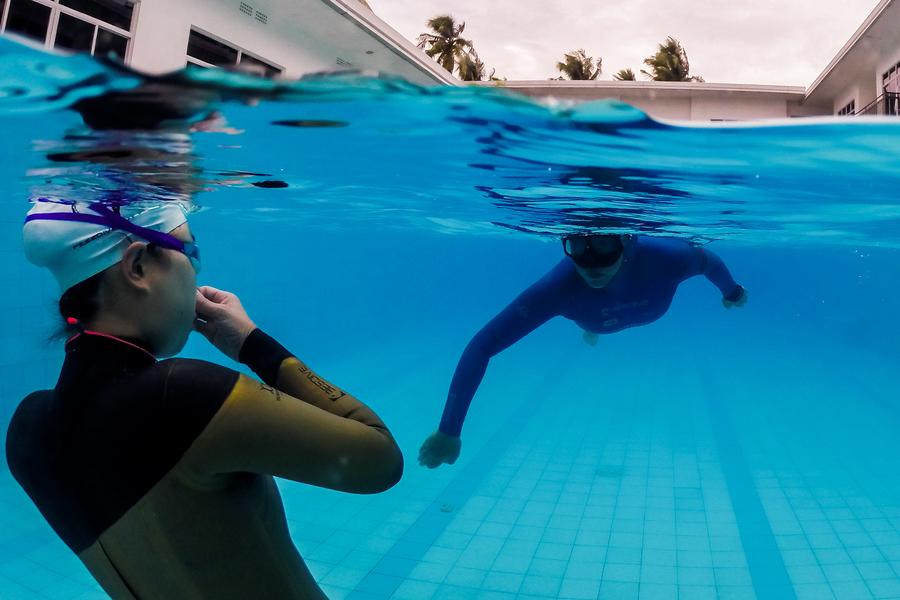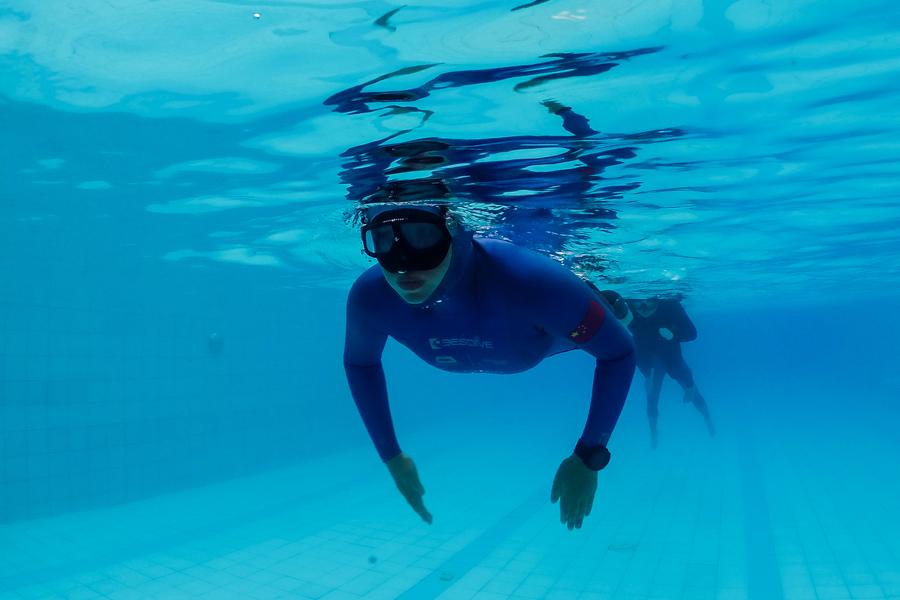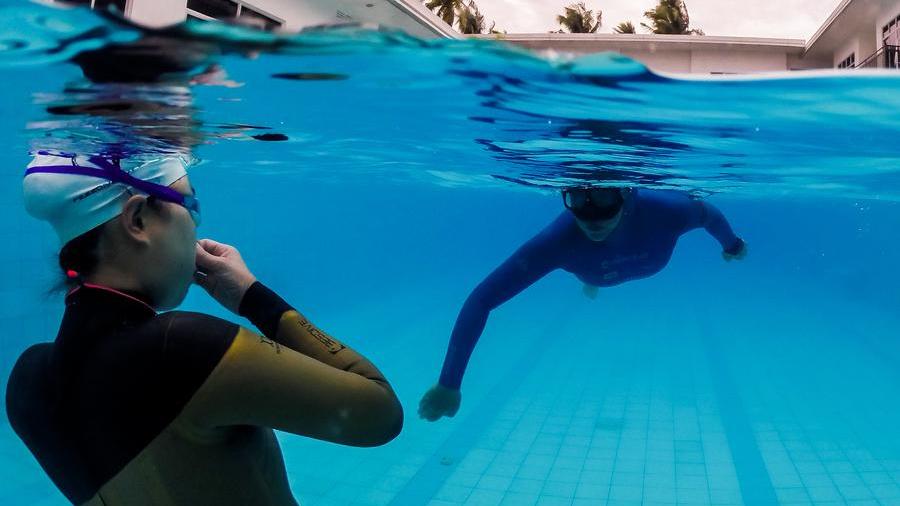Chinese freediver Xu Tongtong (R) coaches diving enthusiasts at a freediving training base in Panglao, an island town in the central Philippines' Bohol Province, Aug. 12, 2023. (Xinhua/Rouelle Umali)
In the first two months of 2024, 82,314 Chinese travelers entered the Philippines, making China the third-biggest source of foreign visitors to the Southeast Asian country.
by Xinhua writers Zhang Yisheng, Wang Xiaowei
MANILA, June 7 (Xinhua) -- In the crystal-clear waters of central Philippines, Phillip Bendanillo, a freediving guide, led a group of Chinese tourists through a shimmering tornado of sardines.
The bronzed and sculpted 18-year-old Filipino works for Chinese employers who he says treat him like "a family member" in the small island town of Panglao. In recent years, this freediving destination has attracted not only Chinese tourists but also experienced instructors who have started local businesses.
In the first two months of 2024, 82,314 Chinese travelers entered the Philippines, making China the third-biggest source of foreign visitors to the Southeast Asian country.
Freediving, the art of diving underwater on a single breath without the use of scuba tanks, is one of the world's burgeoning water-sports industries.
"Nowadays more and more freedivers come to Panglao to enjoy the beautiful underwater world," Bendanillo said. Located in the Bohol province, known for its conical Chocolate Hills and bug-eyed tarsiers, Panglao has become a popular freediving site due to its excellent sea conditions and pleasant tropical weather.
From local clubs to international competitions, professionals from the Philippines and worldwide are working to build a community of their like-minded.
Sura Dai, a Chinese founder of Freedive+, a freediving school in Panglao, said she hopes to build a "warm and big family" for divers, allowing them to share experiences, celebrate achievements, and support each other in their pursuit of dreams.
Opened in 2015, her school is "the first batch of its kind run by foreigners here," said Dai.
Chinese freediver Xu Tongtong is seen as she trains diving enthusiasts at a freediving training base in Panglao, an island town in the central Philippines' Bohol Province, Aug. 12, 2023. (Xinhua/Rouelle Umali)
Today, more than 100 freedivers from around the world live in Panglao for daily training, including China's Xu Tongtong, a top-ranking female player.
Last year, Xu successfully dived to 100 meters in both games of constant weight and constant weight bi-fins, becoming the third female freediver on the planet to achieve this feat.
"Our diving resorts in Panglao provide safe underwater experiences with well-designed management, attracting more and more international athletes to gather here for training and competitions," said Xu.
When Xu came to Panglao for training a couple of years ago, she met a local bed and breakfast housekeeper. Last year, she found her old friend in a freediving-themed T-shirt, having joined the breath-hold diving community.
Tracy Roxanne, another freediver, praised the professional and high-quality services of Chinese-run diving schools. The Philippine diver sees the Chinese role as "welcoming" and "supportive."
"It's good in a way, because they attract a lot of tourists and also give jobs to the locals," she said.
Philippine President Ferdinand Marcos Jr. said in May that the tourism industry has significantly contributed to the revenue generation, job creation and economic growth of the country. He called for a continued relationship between the government and the private sector to promote the Philippine tourism industry.
Bendanillo echoed these sentiments. "My Chinese bosses are very kind and friendly. They share their experience with me and help me develop my career," he said.






 A single purchase
A single purchase









